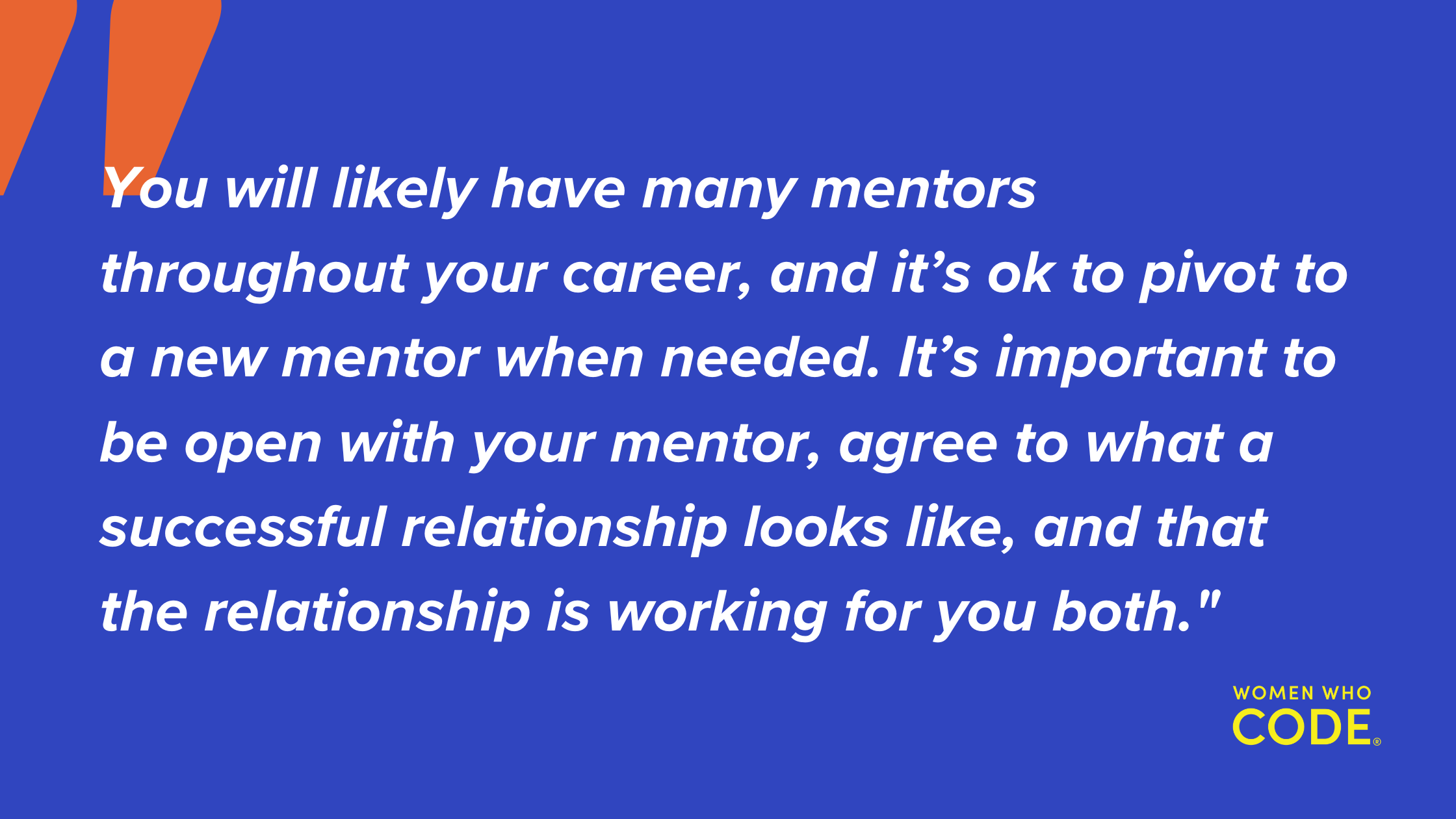Making the Most of Mentorship: Creating a Plan for Success
Written by Anna Shur-Wilson

When exploring mentorship as a mentee, it's vital to define what that relationship means to you and ensure both parties are on the same page. This blog will discuss best practices for mentor-mentee relationships to start your relationship strong.
Sponsorship vs. Mentorship
One common misunderstanding is the difference between professional mentorship and professional sponsorship. Mentorship is closely related to sponsorship and can grow into a sponsorship out of your mentorship relationship.
Mentorship usually focuses on knowledge and experience sharing, with a chance for the mentor to share their path and answer questions from their mentee. Sponsorship is a more active role and advocate. If your sponsor is at your current employer, this could look like bringing up your name in conversations around promotions and new projects.
Define Goals and Expectations
Spending the first meetings with your mentor outlining expectations and goals is important. As a mentee, one practice you can do is to take your larger professional goal and break it into smaller concepts. For example, if your main goal is to "make a career change," this could feel overwhelming to tackle all at once. Reflect on why you want to make a significant change and bring those reasons to your first meetings with your mentor. Document this process in a place that you can share with your mentor.
When I want to question my assumptions or break down my thoughts, I write the significant statement and then write: WHY, BECAUSE, and HOW after these statements to force myself to define my motivations. If you feel blocked when asking these questions, this is an excellent place to start conversations with your mentor.
Example:
I want to make a career change…
BECAUSE I want more money and flexibility
WHY? Because it will increase my quality of life and also make me feel valued at work
WHY? Because feeling valued at work is important to me
WHY… ???
HOW … oh no, I don't know!!

Finding the Right Match
As you define your goals and motivations for mentorship, you will also learn what kind of mentor is best for you at your current professional stage. You will likely have many mentors throughout your career, and it's ok to pivot to a new mentor when needed. It's important to be open with your mentor, agree on what a successful relationship looks like, and ensure the relationship works for you both.
It can be helpful to discuss upfront how, if ever, it would be best to end your formal mentee-mentor relationship. People are individuals, and different styles of mentoring work for different people.
This August, join WWCode's global Group Mentorship Program, a Slack-based digital program designed to help participants practice skills to cultivate better mentee-mentor relationships. Through the program, participants can reflect on areas of interest, hear from experts on professional development topics and get ready to make the most of a future mentee-mentor relationship. While this program does not match participants 1:1, it will allow our community to network with each other and set themselves up for success.
Applications to participate are now open through July 31, and the program begins August 7. Apply now!